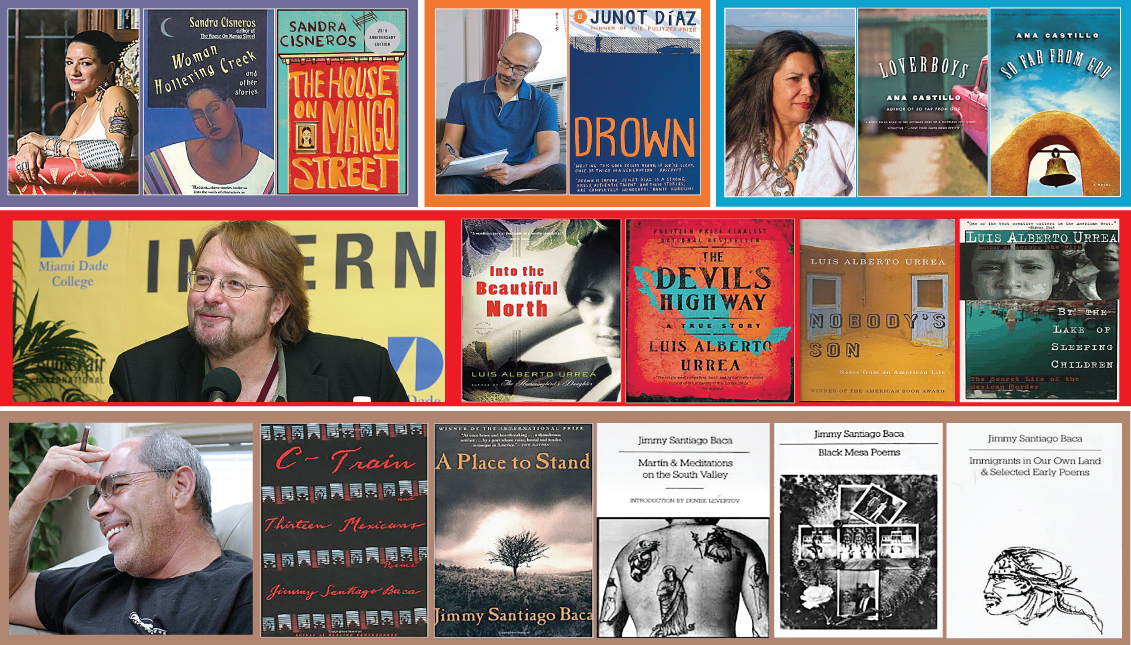
Banned books and crazy quilts
It is banned books week. For those who haven’t heard of it, this is a celebration of the freedom to read what we want. On this week booksellers, librarians,…
It is banned books week. For those who haven’t heard of it, this is a celebration of the freedom to read what we want. On this week booksellers, librarians, publishers, teachers and writers band together to publicize the many books that have been, at some point or another, challenged and taken off bookshelves.
Everything from the Harry Potter series to Maya Angelou’s I Know Why the Caged Bird Sings have been fair game for those bent on banning. Fahrenheit 451, by Ray Bradbury, a book that depicts a dystopia where books are outlawed has, ironically, been banned.
In 2010, Chicanos, and subsequently the Latino media, focused attention on the Tucson Unified School District (TUSD) which pulled a huge list of books — mostly focused on Mexican-American history and identity — out of classrooms and off reading lists as they disbanded the district’s Mexican-American Studies programs. Too “divisive” to use historical texts like the Dictionary of Latino Civil Rights History (2006) by F. A. Rosales, the school district claimed. Nobody but Mexican-Americans could possibly interested in reading Mexican White Boy by Matt de la Peña or Woodcuts of Women by Dagoberto Gilb — so why let them take up space on the shelves?
Underpinning the Tucson School District’s decision was the idea that reading about the Mexican-American history of the United States fostered discontent; that reading the literary depictions of Mexican-American or Latino lives was uninteresting to non-Latinos and politicizing to Latinos. Arizona Superintendent of Public Instruction John Huppenthal said specifically that reading about past (or present) injustices only served to create “racial division and ... hatred.”
Those who rallied early to contest the TUSD book ban accused Huppenthal (and other ban proponents) of bias in consciously divesting the classrooms of the few books in which the majority Mexican-American student body actually saw themselves represented.
In 2013 the federal court mandated the TUSD to restore “culturally relevant” courses. Seven history books were “un-banned” and are now permitted as supplementary class materials. But it was a limited victory. Almost none of the Latino literature that had been pulled from the shelves made it back onto the list of titles approved for classroom use — only Sandra Cisneros’ House on Mango Street.
Then, in 2014, those who had claimed Huppenthal was biased were vindicated by his resignation after admitting he had been anonymously posting racist comments on blogs. Among the comments Huppenthal made were some that proposed that, unlike immigrants who came “before” us, Latinos don’t want to assimilate and be part of the melting pot.
Setting aside the ahistoricity implicit in statements about immigrant Latinos (ignoring or mischaracterizing Mexican-Americans whose families have been here for centuries) ... is it really so terrible to reject the idea of a melting pot whose ideal is to make us indistinct?
A much better metaphor and ideal for us would be a crazy quilt — in which each piece retains its uniqueness even as it forms part of a stitched-together whole.
Books are uniquely suited to be part of that stitching. The words of Alice Walker, Maurice Sendak, Kurt Vonnegut, Sherman Alexie and Ana Castillo tie us — the U.S. — together in an irregular, disorderly, distinctly beautiful way.
Read a banned book this week. Advocate for one. Buy one or check it out of the library. Celebrate US.
And support those who, like the students in Colorado's Jefferson County near Denver have seen fit to do in the past couple of days, refuse to allow books and history to be sanitized and expunged.









LEAVE A COMMENT:
Join the discussion! Leave a comment.